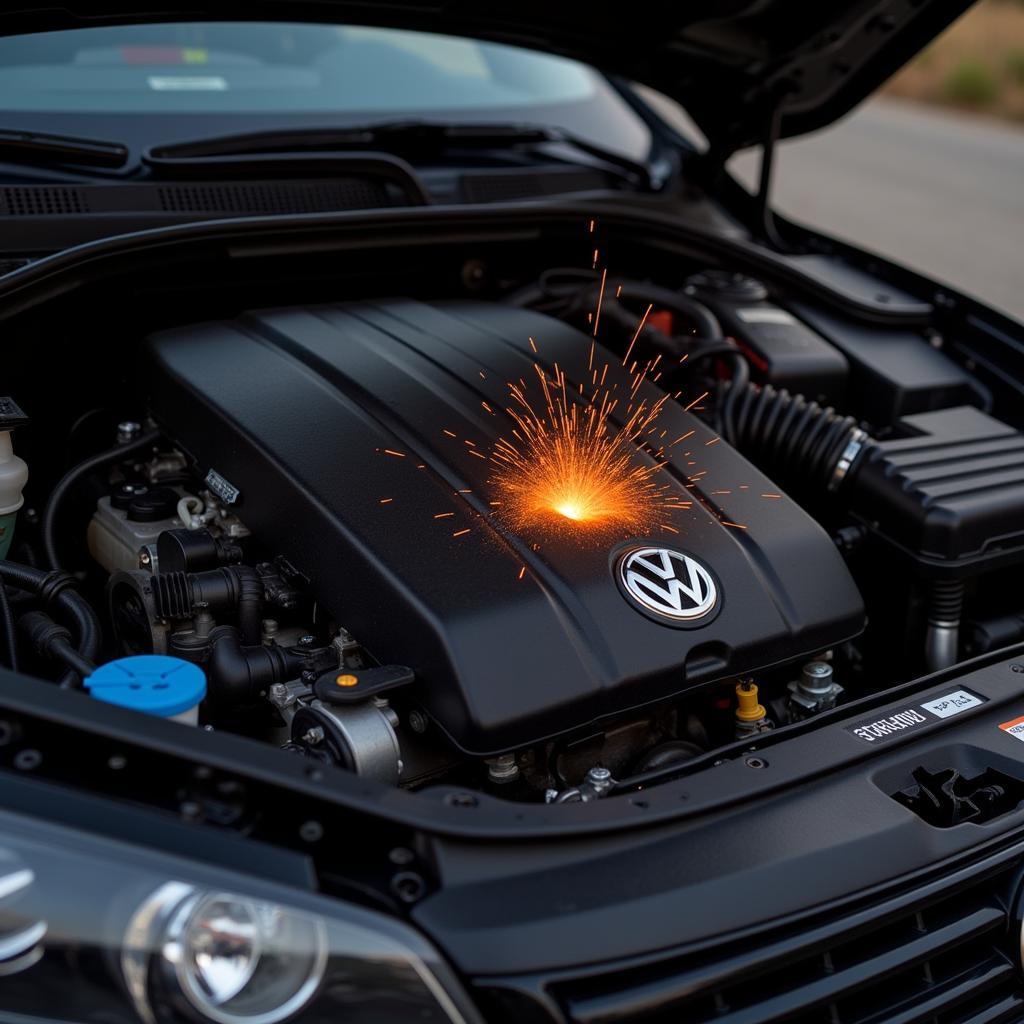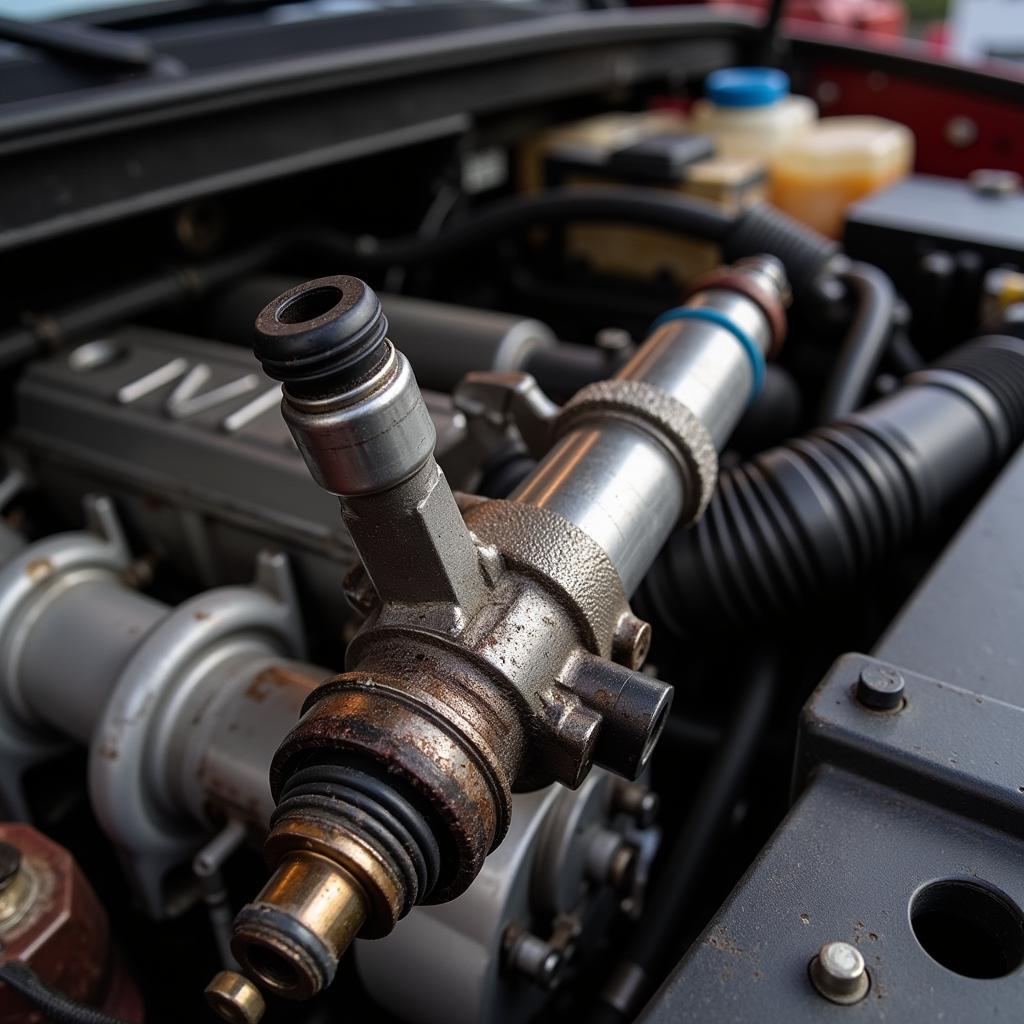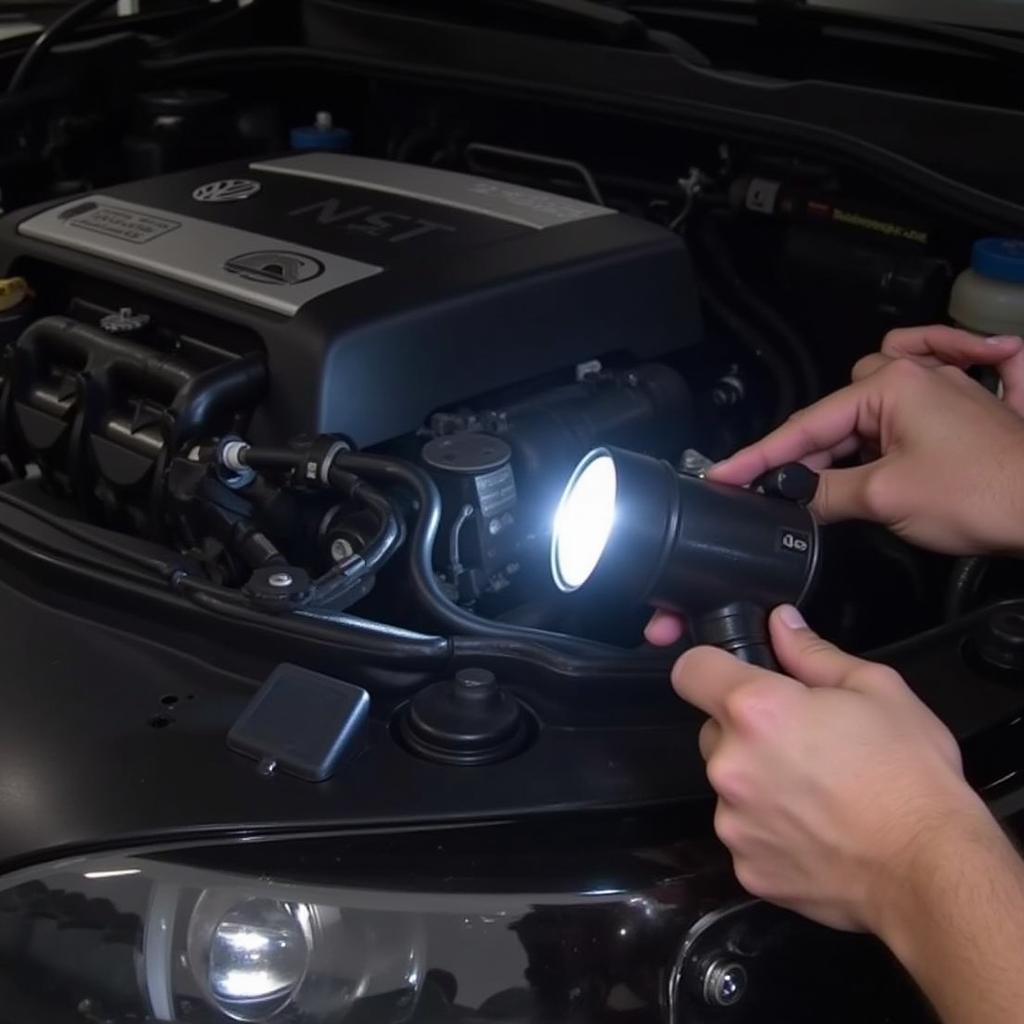Your cart is currently empty!

Understanding and Fixing P0300 and P0304 Codes in Your VW Jetta
The dreaded check engine light can cause a wave of panic for any car owner, especially when accompanied by noticeable performance issues. If you drive a VW Jetta and encounter the P0300 and/or P0304 codes, it’s essential to understand what they mean and how to address them. These codes indicate a problem with your engine’s combustion process, specifically in cylinder 4. This guide will delve into the details of these codes, their potential causes, and the steps to troubleshoot and fix them.
One of the most common causes for the P0304 code is a faulty spark plug or a worn-out ignition coil. vw code p0304 can also be triggered by a vacuum leak, which disrupts the air-fuel mixture. In some cases, a faulty fuel injector can lead to insufficient fuel delivery in cylinder 4.
Decoding the Trouble Codes: P0300 and P0304
Before delving into the solutions, let’s clarify what these codes signify. The P0300 code is a general diagnostic trouble code (DTC) indicating a random or multiple cylinder misfire detected in your engine. This means the engine’s computer has detected that one or more cylinders are not firing properly.
On the other hand, the P0304 code is specific and points directly to cylinder 4 as the source of the misfire. This code helps narrow down the troubleshooting process, as you know where to focus your attention.
 VW Jetta engine experiencing misfire
VW Jetta engine experiencing misfire
Common Causes of P0300 and P0304 Codes in VW Jettas
Several culprits can lead to these trouble codes in your VW Jetta. Understanding these potential causes is crucial for effective diagnosis and repair. Here’s a breakdown of the most common reasons:
1. Worn Spark Plugs and Ignition Coils:
Spark plugs ignite the air-fuel mixture in the cylinders, while ignition coils provide the necessary spark. Over time, spark plugs wear down, and their gap can become too wide or narrow, affecting the spark quality. Similarly, ignition coils can degrade, leading to weak or inconsistent sparks.
2. Vacuum Leaks:
A vacuum leak occurs when there’s an unintended opening in the engine’s intake system. This disrupts the carefully balanced air-fuel mixture required for proper combustion.
3. Faulty Fuel Injectors:
Fuel injectors spray a precise amount of fuel into the cylinders for combustion. A malfunctioning injector in cylinder 4 can disrupt this process, causing a misfire.
 Faulty fuel injector in VW Jetta
Faulty fuel injector in VW Jetta
4. Clogged or Damaged Catalytic Converter:
The catalytic converter plays a crucial role in reducing harmful emissions. If it becomes clogged or damaged, it can restrict exhaust flow, leading to misfires.
5. Faulty Engine Sensors:
Various sensors, like the mass airflow sensor (MAF), manifold absolute pressure sensor (MAP), and oxygen sensors, provide data to the engine control unit (ECU). Malfunctioning sensors can disrupt the air-fuel mixture or ignition timing, contributing to misfires.
Troubleshooting Steps for P0300 and P0304 Codes
Now that you understand the potential causes, let’s outline the steps to troubleshoot these codes effectively:
1. Inspect the Spark Plugs and Ignition Coils:
- Visually inspect the spark plugs in cylinder 4 for signs of wear, damage, or fouling.
- Check the spark plug wires (if applicable) for cracks, burns, or loose connections.
- Test the ignition coil for proper resistance using a multimeter.
2. Check for Vacuum Leaks:
- Listen for any hissing sounds coming from the engine, particularly around the intake manifold and vacuum hoses.
- Visually inspect vacuum hoses for cracks, splits, or loose connections.
- Use a carburetor cleaner spray to check for leaks while the engine is idling (be cautious as it’s flammable).
 Mechanic inspecting vacuum hoses in VW Jetta
Mechanic inspecting vacuum hoses in VW Jetta
3. Inspect the Fuel Injector (Cylinder 4):
- Listen for any unusual clicking sounds coming from the fuel injector.
- Check the fuel injector’s resistance with a multimeter.
- Consider having the fuel injector professionally tested or cleaned.
4. Inspect the Catalytic Converter:
- Check for signs of physical damage or rattling sounds from the catalytic converter.
- Use a temperature gun to compare the inlet and outlet temperatures of the converter (a significant difference may indicate a clog).
5. Check Engine Sensors:
- Inspect the MAF sensor for dirt or debris and clean it if necessary.
- Check the MAP sensor for any damage or blockage.
- Inspect the wiring and connectors of all relevant sensors for any issues.
Expert Insights
“While these troubleshooting steps can help identify the root cause of P0300 and P0304 codes, it’s important to remember that modern vehicles like the VW Jetta rely on complex electronic systems,” says John Miller, a seasoned automotive engineer with over 20 years of experience. “Using an OBD-II scanner to read the specific fault codes and seeking professional help if needed is always recommended for accurate diagnosis and repair.”
Conclusion
Experiencing engine misfires in your VW Jetta, indicated by the P0300 and P0304 codes, can be concerning. However, by understanding the potential causes and following the troubleshooting steps outlined in this guide, you can effectively address the issue. Remember, regular maintenance and addressing car problems promptly can help prevent more serious issues down the road.
Need further assistance with your VW Jetta’s P0300 or P0304 codes? Contact VCDStool for expert advice and solutions. Call us at +1 (641) 206-8880 and our email address: vcdstool@gmail.com or visit our office at 6719 W 70th Ave, Arvada, CO 80003, USA.
by
Tags:
Leave a Reply